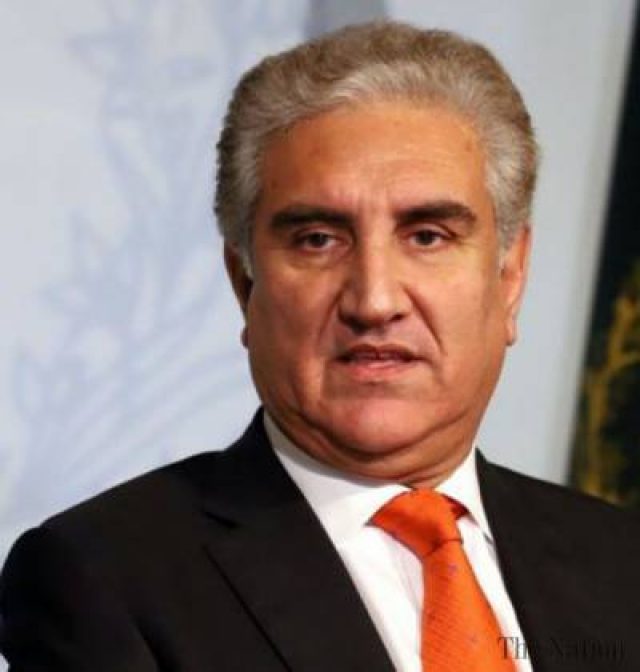Dr. Zafar Nawaz Jaspal |
The continuity of asymmetrical warfare in Afghanistan has destabilizing spill-over effects on its neighbours as well as on great powers strategic competition. Therefore, everyone desires to end the intrastate conflict without compromising on its own vested interests. This intransigent attitude of both internal and external stakeholders is not only sustaining the warlike situation in the country but is also hindering constructive initiatives in Afghanistan.
Nevertheless, the recent Americans engagement with Pakistan incubated a slight prospect for restarting a dialogue process among the warring factions in Afghanistan to improve the internal situation of the country. The problem is that instead of sincerely engaging Pakistan, the Americans dictate and pressurizes Islamabad for managing the conflict in Afghanistan.
Islamabad has been maintaining that it has not been providing safe-hideouts to Afghan Taliban including the Haqqani network. Without settling the Haqqani-network irritant the mitigation of mistrust between Washington and Islamabad seems impossible.
Alice Wells, the Principal Deputy Assistant Secretary of State for South and Central Asia during her last week visit to Islamabad reiterated Washington stance to eliminating all terrorist groups present within Pakistan’s borders. While sharing Washington’s reservation with the Pakistani high-ups’ including Army Chief over Afghan Taliban’s safe hideouts, once again she asked to them to play their role in bring Afghan Taliban to the negotiating table to kick off a constructive dialogue for the sake of peace in Afghanistan.
Read more: Pak-Afghan blame game: who reaps the benefits?
Islamabad understands that without engaging Taliban the dialogue process for the sake of peace in Afghanistan is hopeless. Therefore, engaging Taliban is imperative for creating a conducive environment for the peace process in the war-torn country. On July 05, 2018, Pakistan’s Foreign Office spokesman Dr Muhammad Faisal reiterated: “Pakistan believes that convincing the Taliban to join the peace process is the shared responsibility of all stakeholders. He added: “All countries having contacts with the Taliban, including the US, should use their influence to bring them to the negotiating table.” Indeed, a collective initiative is a right step in the right direction.
Islamabad has been voicing that individually it cannot convince Taliban to participate in the dialogue process. Therefore, all the stakeholders including the United States, Russia, China and Iran influence the Afghan Taliban for restarting a dialogue process for creating peace in the country. Realistically, without the Americans sincerity restarting result-oriented dialogue process in Afghanistan is impossible. The US-led NATO troops presence in Afghanistan and its influence on the Ghani government is important to engage warrior factions for the dialogue process.
Nevertheless, the recent Americans engagement with Pakistan incubated a slight prospect for restarting a dialogue process among the warring factions in Afghanistan to improve the internal situation of the country.
The Americans role in instigating three- days (June 15-17, 2018) Eid cease-fire between Afghan Taliban and Ghani government confirms their contacts with various factions in Afghanistan. US Secretary of State Mike Pompeo stated: “We’re certainly hopeful that both the Taliban and those … or countries that have some degree of influence with the Taliban will equally support this limited duration ceasefire.” Nonetheless, it authenticates Americans contacts with Afghan Taliban leadership.
Read more: Afghan quagmire: Options for Pakistan
Islamabad did facilitate in arranging a temporary ceasefire in Afghanistan, hoping that it would jump-start the Afghan reconciliation process. However, the Taliban refused to continue the cease-fire because they wanted to start a direct dialogue with Americans. Whereas, the latter believes that holding direct talks with Taliban delegitimizes the Ghani government. Lisa Curtis clarified that: “The US is ready to participate in the discussion, but we cannot serve as a substitute for the Afghan government and the Afghan people.” Ironically, Washington has been pressurizing Islamabad to bring Taliban on the negotiating table without showing flexibility in its own policy.
It has been alleging Pakistan and criticizing others for supporting Taliban. But, it is hesitant in changing its Afghanistan policy. Actually, it considers Afghanistan as the heartland of its Eurasia strategy. Without maintaining influence in Afghanistan it cannot pursue successfully its objectives in Eurasia. Perhaps, the significance of Afghanistan has increased in Washington’s strategic calculations after the assertive policies of both China and Russian Federation in Asian affairs.
All the stakeholders including the United States, Russia, China and Iran influence the Afghan Taliban for restarting a dialogue process for creating peace in the country. Realistically, without the Americans sincerity restarting result-oriented dialogue process in Afghanistan is impossible.
The killing of Mullah Fazlullah—the leader of the Pakistani Taliban by the American drone strike in Afghanistan province of Kunar, near the Pakistani border is a positive development for improving trust between Islamabad and Washington. But the latter’s reiteration of its old mantra regarding the Haqqani network’s sanctuaries located inside the Pakistani territory is a disquieting ultimatum.
Read more: IS in Afghanistan: An emerging threat in a volatile region
Islamabad has been maintaining that it has not been providing safe-hideouts to Afghan Taliban including the Haqqani network. Without settling the Haqqani-network irritant the mitigation of mistrust between Washington and Islamabad seems impossible. To conclude, initiating a conflict management process entailing to a durable peace in the war-torn country is a shared responsibility of both the internal and external stakeholders of Afghanistan. Hence, instead of alleging one another, they should cooperate for the peace and prosperity of Afghanistan.
Dr. Zafar Nawaz Jaspal is Associate Professor, School of Politics and International Relations, Quaid-i-Azam University, Islamabad. He is also an advisor on Non-Proliferation to SASSI, London and a course coordinator at Foreign Services Academy for the Pakistan Ministry of Foreign Affairs. Email: jaspal_99@hotmail.com. This piece was first published in Pakistan Observer. It has been reprinted with permission. The views expressed in this article are the author’s own and do not necessarily reflect Global Village Space’s editorial policy.














